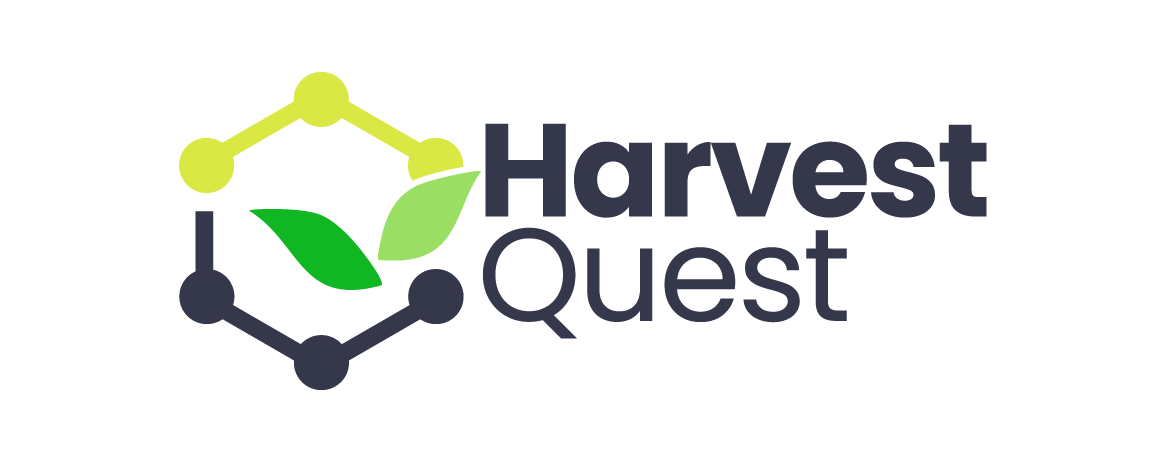Biological Boost from Harvest Quest Transforms Food Waste Recycling Operations
Municipal composting has become fairly commonplace across the United States. As states pass bans on landfilling various organic materials, the obvious outcome for most communities is to establish a compost yard. The success of these operations, however, is mixed at best. For some, the results generate a few batches of decent compost each year but at an overall budgetary cost; others, a headache of odors and vectors and at worst, spontaneous combustion.
This is definitely not the case for Fayetteville, Arkansas.
When the state of Arkansas banned yard waste from landfills in the 1990s, Fayetteville responded with a long-term vision and commitment to not just compost its yard waste , but embrace the whole scope of positive environmental and community benefits it delivers. In the process, the city has created a hugely popular service embraced by the community.
Everyone Starts With a Learning Curve
Waste Reduction Coordinator Brian Pugh has been part of this process since 2002 and has witnessed an evolution of the program over the years. He’s quick to admit there were certainly learning curves along the path of getting to where the program is today.
“I think most cities recognize composting can be a challenge. When our compost site was created in the late 1990s, it took a while to dial in our process before the results were acceptable,” he recalls. “The challenge is even greater when you introduce food waste too, as we learned during our first attempt in late 2007.”
Fayetteville’s organics recycling efforts have always been forward-thinking. In 2007, they partnered with the area Sam’s Club superstore to accept food waste and launch a pilot program to begin composting it. The nearly year-long project only achieved limited success, but it taught Brian some incredibly valuable lessons that were leveraged several years later when the city was ready to try again.
The Nuances of Municipal Food Waste Composting
“It’s a much more demanding process,” says Brian of food waste composting. “We worked with the Sam’s Club in 2007 and 2008 before we realized we just weren’t ready. It requires a proper method, proper infrastructure, proper collection process and we just didn’t have that yet. But that pilot program was a learning experience that became helpful and set us up for the success we’re having today.”
That success began in late 2015 when the city contracted Florida-based Kessler Consulting to conduct a broad waste diversion master plan study. Kessler in turn introduced them to Darren Midlane, chief technology officer of compost biotech firm Harvest Quest. The combination of Kessler’s process expertise and Harvest Quest’s microbial expertise led to a second food waste composting pilot program in 2016. This effort had a dramatically different outcome.
“Kessler helped us with big-picture process and site improvements,” shares Brian. “We had recently upgraded our 3-acre processing area with a concrete pad including curbs and grading to allow capture of stormwater in a detention pond. Our infrastructure investments, addition of employees and equipment upgrades allowed us to conduct a proper food waste collection and composting program for our community.”
Enhancing Biology with Biology
Harvest Quest helped them improve the composting methodology itself.
“Adding the Harvest Quest inoculant eliminated the odors, vectors and other common challenges in food waste composting,” Brian continues. “And it accelerated our curing times to around 60 days, though we often choose to let it go for 90. During that one-year pilot program, we produced some outstanding compost and it’s only gotten better since.”
Needless to say, food waste composting as part of the waste diversion master plan was well received by the public, the City Council and their administration. The City applied for and was granted an ‘O’ permit, changing them from a yard waste site to an organics site. And in the next five years, Fayetteville built themselves into a nationally recognized facility.
That process begins with putting food waste down and covering it under a layer of green waste the day it comes in, to prevent a stagnant pile from having time to emit odors or attract vectors. Over the course of two or three weeks, a full windrow is built with the Harvest Quest inoculant applied at each end and in the middle. The row is capped, often with half-finished compost or ground wood chips, and the timer begins.
Achieving Acceleration with Harvest Quest
“We find temperatures hit 150-155 degrees easily within a week,” details Brian. “When you dig into the pile, the greyish fungi is everywhere, and really doing its job! The Harvest Quest inoculant and the initial resting period is crucial to our success.”
The typical Harvest Quest MSAP method recommends one turn after 45 days and a final finishing turn after two months. But Brian says the city has found value in pushing a little further into that timeline.
“We do the first turn at 45 days, but then try to let it sit for two-and-a-half or even three months total,” he continues. “The closer we get to three months we find the compost gets a little better. We could consider it done at two months, but there’s no pressure to turn around our piles faster and the extra time ensures an even more complete breakdown of material.”
At the end of the process, the finished compost is screened and allowed to sit even longer in a finish pile, while any overs are recirculated back to the start of the process.
Adding Food Waste Collection
The success of their second pilot program in 2016 cleared the path for a very ambitious embracing of food waste recycling in Fayetteville. A pick-up program was launched that steadily grew, bringing in schools, restaurants and even the University of Arkansas. Several community drop-off locations were set up, with more planned.
When the pandemic hit, food waste collection was slowed considerably, but the impact was clearly just a temporary setback, as many of those routes are coming back online.
“Fayetteville has such a strong environmental ethic,” Brian rightfully boasts. “The people in Fayetteville really want this. We’re already back up to collecting from about 30 restaurants again, and the University is contributing. At our peak we were adding a restaurant a week, and there’s every indication that we’ll get back to that once the economy is functioning at 100% again.”
Nationally Recognized Success
All this hard work and the commitment of the overall community has attracted national attention. The city was recognized by the National Recycling Coalition with a 2020 Outstanding Community/Government Program Award, a well-deserved milestone on their never-ending recycling journey.
“I’m so proud of the City of Fayetteville. The great vision and all the hard work by our entire team at the Recycling and Trash Collection Division got us here, but it’s because of the people in this community embracing what we’re doing that we were recognized nationally,” says Brian. “It’s truly a great moment for us.”
The award doesn’t mark the end of a plan. Rather, Fayetteville has so many more plans in the works moving forward. From community awareness and education to expanding collection expansion to continued development of a delivery service, there are so many new initiatives being brainstormed.
Fayetteville, Arkansas put themselves on the national recycling map and there’s no doubt the country will have more to learn from them in the future.

